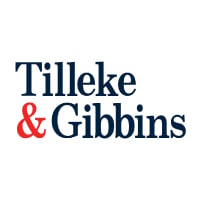

Country legal head | EssilorLuxottica






Napat Siri-armart
Country legal head | EssilorLuxottica
How do you approach managing legal aspects during periods of instability or crisis to ensure the organisation’s resilience?
I generally assess the situation to understand the nature of the crisis and evaluate the potential risks and impacts it may have on the business and the organization. If it falls within my authority to make a decision, I will consult with the business team regarding the course of action I plan to take to resolve the issue or stabilize the situation. This ensures they are informed and, if necessary, I may also request their support—especially if the matter affects their area of responsibility.
On the other hand, if the issue exceeds my scope of responsibility, I typically escalate the matter to the Regional General Counsel. I discuss the situation and its potential impact on local’s operations, as well as share my thoughts or any preliminary actions I have taken to mitigate the risk. I then seek their input or confirmation to proceed based on my proposed approach.
This practice, along with our team’s culture of clear communication, greatly contributes to creating a stable path forward when facing crises or legal uncertainties.
We are currently living through a time of geopolitical change, and the world order that we have come to take for granted for many years is being rewritten. Does this affect your company’s risk profile and, if so, what are you doing to mitigate this?
Yes, I recognize that the global order and balance of political power are shifting in increasingly unpredictable ways. While such changes may benefit certain regions, they may adversely affect others—or even the organization as a whole. As part of the legal team in a dynamic, globally active organization, the role of a country legal counsel cannot be passive. On the contrary, I must take a proactive approach, applying strong adaptability skills to learn from ongoing changes, anticipate developments, and assess how political shifts in one country could impact our group or local operations.
For instance, consider the recent tariff policies introduced by President Trump, which disrupted supply chains across numerous industries. In situations like these, the legal team must be prepared to engage in discussions with local authorities to evaluate whether national policies and regulations might also shift in a way that could either support or hinder our local operations. It is also crucial to simulate worst-case scenarios as part of our risk management and preparedness strategy.
Based on your experiences in the past year, are there any trends in the legal or business world that you are keeping an eye on that you think other in-house lawyers should be mindful of?
I believe the rise of AI presents both opportunities and challenges for the legal industry. In the early stages of AI development, the legal sector remained relatively unaffected. However, this has changed significantly. Today, AI can instantly generate legal documents, and non-legal users can easily access and utilize templates without needing professional legal guidance.
This shift poses at least two major risks to organizations: legal risk and data leakage.
First, when individuals believe they can rely solely on AI and bypass the legal department, they may unknowingly use incorrect or inappropriate legal documents or advice. This can lead to compliance issues, contractual problems, or even legal disputes that disrupt business operations.
Second, there is the risk of data leakage. Many AI tools—especially those that are open-source or publicly accessible—do not require user authentication. This increases the likelihood that internal or sensitive company information could be unintentionally entered into these platforms. As a result, such data may be stored, processed, or even reused in ways that compromise confidentiality.
These developments highlight the growing need for legal teams to stay engaged and provide clear guidance on responsible AI use within the organization.